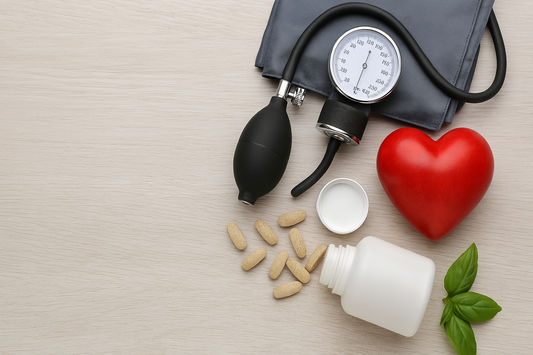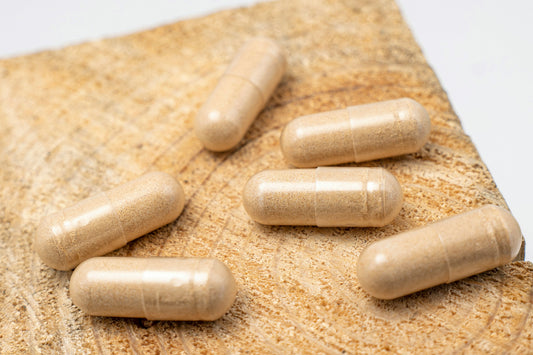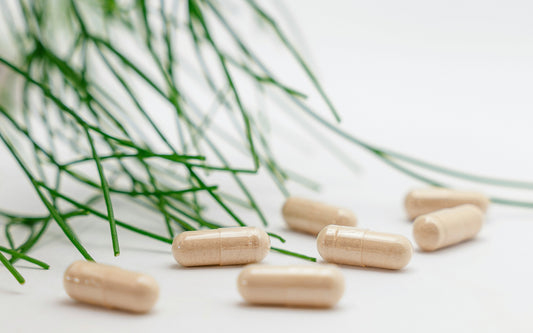Discover Natural Blood Pressure Solutions for Healthier Living
Are you searching for natural remedies to reduce high blood pressure? Look no further! In this article, we'll explore effective ways to manage blood pressure without relying on medication. By making simple lifestyle changes, you can take control of your health and lower your risk of heart disease.
Key Takeaways:
- Natural blood pressure solutions are a safe and effective way to manage high blood pressure.
- By implementing lifestyle changes, you can lower your blood pressure and reduce the risk of heart disease.
- Key strategies include weight loss, regular exercise, a healthy diet, reducing salt and alcohol intake, quitting smoking, managing stress, and monitoring blood pressure regularly.
- Remember to consult your healthcare provider for personalized advice and guidance.
Lose Extra Pounds and Watch Your Waistline
One of the most effective lifestyle changes for controlling blood pressure is weight loss. Being overweight increases the risk of high blood pressure. Losing even a small amount of weight can help reduce blood pressure. In general, blood pressure might go down by about 1 millimeter of mercury (mm Hg) with each kilogram (about 2.2 pounds) of weight lost.
It's also important to watch your waistline, as carrying too much weight around the waist increases the risk of high blood pressure. Belly fat is particularly dangerous for blood pressure. Losing weight around the waist can help lower blood pressure and improve overall health. To achieve weight loss, focus on a healthy, balanced diet and regular physical activity.
To lose extra pounds and watch your waistline, consider the following tips:
- Eat a nutrient-dense, low-calorie diet that includes plenty of fruits, vegetables, whole grains, lean proteins, and healthy fats.
- Avoid sugary drinks and processed foods, as they are often high in calories and contribute to weight gain.
- Engage in regular physical activity, such as brisk walking, jogging, cycling, or swimming, for at least 30 minutes a day.
- Keep track of your calorie intake and make sure you're consuming fewer calories than you burn.
- Get support from a healthcare professional or a registered dietitian to help you create a personalized weight loss plan.
By shedding extra pounds and maintaining a healthy weight, you can positively impact your blood pressure levels and improve your overall cardiovascular health.
Exercise Regularly

Regular physical activity is essential for maintaining a healthy blood pressure level. Engaging in regular exercise can help make your heart stronger and more efficient at pumping blood, which in turn lowers the pressure in your arteries. Aim for at least 30 minutes of moderate physical activity every day. This can include activities such as brisk walking, jogging, cycling, swimming, or dancing. If you prefer something more intense, consider aerobic exercise or high-intensity interval training, as they have been shown to be particularly effective in reducing blood pressure.
When planning your exercise routine, don't forget to include strength training exercises as well. These exercises help build muscle mass, which contributes to overall cardiovascular health and can further lower blood pressure. Incorporating exercises that target major muscle groups, such as weightlifting or resistance training, twice a week can yield significant benefits.
Benefits of Regular Physical Activity
- Strengthens the heart muscle
- Improves blood flow and circulation
- Reduces the risk of cardiovascular disease
- Helps maintain a healthy weight
- Improves overall fitness and energy levels
- Reduces stress and promotes better sleep
Remember to consult with your healthcare provider before starting any new exercise program, especially if you have pre-existing health conditions. They can provide personalized recommendations and guidance to ensure you engage in activities that are safe and suitable for your individual needs.
Eat a Healthy Diet
Eating a nutritious diet is crucial for maintaining healthy blood pressure levels. The Dietary Approaches to Stop Hypertension (DASH) diet and the Mediterranean diet are two popular eating plans that have been shown to lower blood pressure.
The DASH diet emphasizes consuming whole grains, fruits, vegetables, and low-fat dairy products. It also encourages reducing saturated fat and cholesterol intake. This diet is rich in potassium, which helps counteract the negative effects of sodium on blood pressure.
The Mediterranean diet, on the other hand, focuses on consuming fresh fruits and vegetables, whole grains, lean proteins, and healthy fats like olive oil. This diet is also known for its high potassium content and the beneficial impact it has on blood pressure.
Some blood pressure-friendly foods to include in your diet:
- Fresh fruits and vegetables
- Whole grains
- Low-fat dairy products
- Lean proteins like fish, poultry, and beans
- Healthy fats from sources like olive oil, avocados, and nuts
- Herbs and spices instead of salt for flavoring
By following a healthy diet, you can support your blood pressure management efforts and improve your overall well-being.
Reduce Salt (Sodium) in Your Diet

Reducing salt intake in your diet is crucial for maintaining healthy blood pressure levels. Consuming too much sodium can raise blood pressure and put you at risk for heart disease. Here are some tips to help you reduce your salt intake:
- Read food labels: Check the sodium content on food labels and choose low-sodium or sodium-free options whenever possible.
- Eat fewer processed foods: Processed foods are often high in sodium. Opt for fresh, whole foods and cook meals from scratch to have better control over the amount of salt you consume.
- Avoid adding salt: Limit the use of salt in your cooking and avoid adding additional salt to your meals. Experiment with other seasonings and herbs to enhance the flavor of your dishes.
It is recommended to limit sodium intake to 2,300 milligrams (mg) a day or less. However, for most adults, a lower sodium intake of 1,500 mg a day or less is ideal. By being mindful of the sodium content in your diet and making conscious choices, you can effectively reduce your salt intake and support healthy blood pressure levels.
Conclusion
Managing high blood pressure is essential for maintaining good health and preventing heart disease. By adopting natural remedies and a holistic approach to blood pressure control, individuals can effectively lower their blood pressure levels and improve their overall well-being.
Implementing lifestyle changes, such as losing extra pounds, exercising regularly, and eating a healthy diet, can have a significant impact on blood pressure management. Weight loss not only reduces the risk of high blood pressure but also contributes to overall cardiovascular health. Regular physical activity strengthens the heart and helps lower blood pressure. A balanced diet rich in fruits, vegetables, whole grains, and low-fat dairy products, while limiting sodium and processed foods, can help maintain healthy blood pressure levels.
Additional steps, such as reducing salt and alcohol intake, quitting smoking, getting enough sleep, and managing stress, also contribute to blood pressure control. Regularly monitoring blood pressure levels at home and seeking medical advice and checkups are crucial for effective management of high blood pressure.
By taking a holistic approach to blood pressure control, individuals can embrace a healthy lifestyle that not only reduces blood pressure but also improves overall well-being. Natural remedies, when combined with medical guidance, provide a comprehensive and sustainable method for managing high blood pressure and leading a healthier life.
FAQ
Can lifestyle changes help lower high blood pressure?
Yes, making certain lifestyle changes can help lower high blood pressure and reduce the risk of heart disease.
How does weight loss affect blood pressure?
Losing even a small amount of weight can help reduce blood pressure. On average, blood pressure might go down by about 1 millimeter of mercury (mm Hg) with each kilogram (about 2.2 pounds) of weight lost.
What type of exercise is recommended for lowering blood pressure?
Aim for at least 30 minutes of moderate physical activity every day, such as walking, jogging, cycling, swimming, or dancing. Aerobic exercise and high-intensity interval training are particularly effective. Strength training exercises should also be included in your exercise program.
What kind of diet can help reduce high blood pressure?
Eating a diet rich in whole grains, fruits, vegetables, and low-fat dairy products, and low in saturated fat and cholesterol can lower high blood pressure. Following eating plans like the Dietary Approaches to Stop Hypertension (DASH) diet and the Mediterranean diet have been shown to lower blood pressure.
How can I reduce salt intake in my diet?
To reduce salt intake, read food labels, eat fewer processed foods, avoid adding salt to your meals, and cook at home to control the amount of sodium in your food. Limiting sodium to 2,300 milligrams (mg) a day or less is recommended, but a lower sodium intake of 1,500 mg a day or less is ideal for most adults.
Are natural remedies enough to control high blood pressure?
Natural remedies can be effective in managing high blood pressure, but they should be used in conjunction with medical advice and regular checkups. Embracing a holistic approach to blood pressure control, including lifestyle changes and medical guidance, is important for long-term management.





